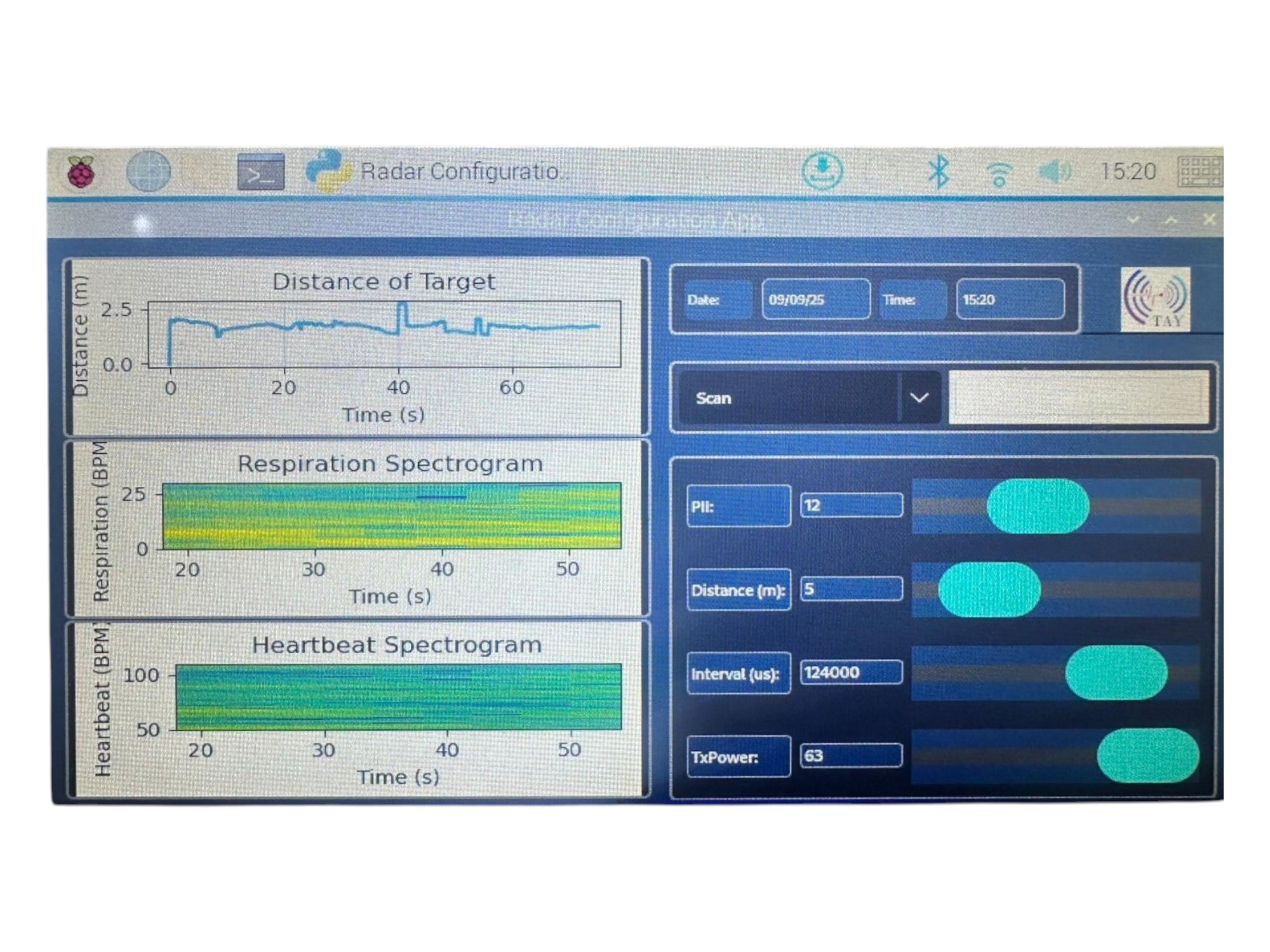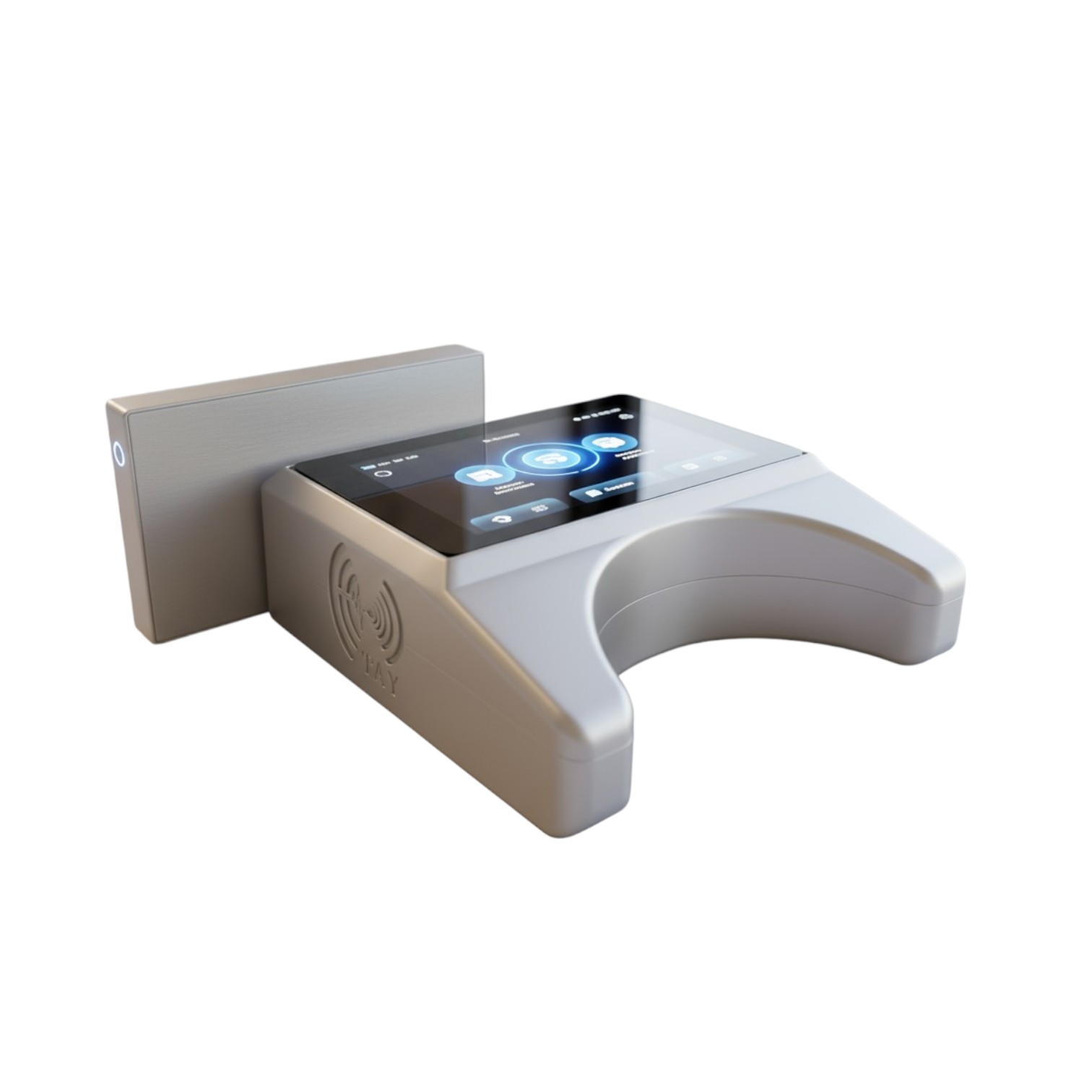Life-saving technology for search and rescue operations. Detects live individuals under debris faster and more reliably than traditional methods.

Real-time data visualization and vital sign analysis

Ergonomic and portable structure, suitable for field use

Resilient design against harsh environmental conditions
Equipped with innovative technologies and advanced algorithms
Precise detection and high-resolution imaging with Ultra Wideband radar technology
Instant vital sign detection and location identification for rapid response
Precise detection and analysis of respiration and heart rate frequencies
Optimized power consumption for prolonged field use
Resilient design against harsh environmental conditions
Easy to use with ergonomic and portable design
TAY Software Technologies Inc. was established in 2023 with the support of TEYDEB 1512 (1812), pioneering solutions in radar imaging software and antenna technologies. The company focuses on developing energy-efficient and precise vital sign detection systems by combining academic knowledge with industrial experience.
Innovative antenna designs and advanced radar signal processing algorithms form the core competencies of TAY Software Technologies Inc. This approach enables the company to make significant contributions in critical areas such as disaster management and medical monitoring.
The primary aim of this project is to develop a compact, ready-to-sell device with ultra-wideband (UWB) radar-based, real-time vital sign detection capabilities, suitable for critical areas such as search and rescue operations and medical monitoring.
Previous prototypes faced limitations such as offline processing of acquired data and non-ergonomic device dimensions. This new project addresses these issues by aiming to reduce antenna sizes, optimize signal processing algorithms for real-time operation, and enhance the device's energy efficiency.
One of the key innovations of the device is the use of metamaterial-based high-gain UWB antennas. These specialized antennas enable significant reduction in the size of UWB radar sensor elements. Miniaturization enhances the device's energy efficiency while also facilitating field use.
The device is equipped with advanced signal processing algorithms capable of real-time vital sign detection. After noise reduction is performed on the raw data using Singular Value Decomposition (SVD) and a feedback filter, target detection is carried out using CFAR.
The data management infrastructure developed for real-time detection enables continuous data streaming from the radar module and instantaneous processing of this data. The system is optimized using timestamping and buffering structures.
The device is ideal for quickly and reliably locating individuals trapped under debris in disasters such as earthquakes, landslides, and avalanches. By providing faster and more accurate results compared to traditional methods, it assists rescue teams in timely interventions and saving lives.
The device's precise vital sign detection capability offers potential applications in the field of medical monitoring. Especially in situations requiring remote respiratory and heart rate monitoring, it can be used as a contactless solution.
The output of this project will reduce Turkey's dependence on foreign radar sensor technologies and provide domestic and national solutions in critical sectors, thereby offering a strategic advantage. With high energy efficiency and precise detection capabilities, it is positioned as a highly competitive product in the market.